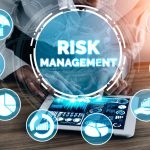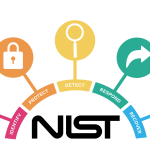VDA 6.3 is a process audit standard designed to assess the quality and stability of manufacturing and supply chain processes. Structured around seven core elements—ranging from supplier evaluation to production, customer service, and continuous process monitoring—it emphasizes risk management and process reliability. Each area is scored to identify non-conformities and … [Read more...] about Why Non-Automotive Companies Need Process Audits
Mastering Quality Inspections: When and How to Check Your Products?
This podcast episode from Quality Inspection includes a discussion outlining a decision-making framework for selecting quality inspections based on production context, using a flowchart developed from nearly two decades of industry experience. Inspections are essential for verifying product quality at key stages—especially when working with external or upstream suppliers. If a … [Read more...] about Mastering Quality Inspections: When and How to Check Your Products?
The Hidden Cost of Shortcuts: Why We Risk It and What It Means for Quality Management
The article explores the deep-rooted psychological and organizational reasons behind our tendency to take shortcuts, even when we know the risks. Drawing on a relatable example—walking downstairs with both hands full—it illustrates how people often make risky decisions out of convenience or efficiency. While this might lead to a dropped phone in everyday life, in a quality … [Read more...] about The Hidden Cost of Shortcuts: Why We Risk It and What It Means for Quality Management
How Embedded Quality guides organizations moving from strictly compliance to delivered quality
Conventional quality management, rooted in audits and regulatory compliance, is no longer sufficient to meet the demands of today’s competitive and volatile business environment. Chief Quality Officers (CQOs), now entering the C-suite, are expected to shift away from reactive, siloed practices and toward strategic leadership. Despite widespread compliance, product recalls have … [Read more...] about How Embedded Quality guides organizations moving from strictly compliance to delivered quality
The Evolution of Quality Standards: From ISO 9001 to the 9100 for Aerospace
ISO 9001 serves as the foundational quality management system (QMS) standard for organizations across industries, setting a global benchmark for delivering consistent and reliable products and services. However, in high-stakes sectors like aerospace, aviation, and defense, ISO 9001 alone does not meet the rigorous requirements for safety and precision. To address these unique … [Read more...] about The Evolution of Quality Standards: From ISO 9001 to the 9100 for Aerospace
Fun List of Ways ISO 9001 Doesn’t Comply with ISO’s Directives on Standards Development
One scathing and detailed critique of ISO 9001 shows how ISO 9001:2015 and the forthcoming 2026 revision, fails to comply with the very rules ISO sets for developing standards. These rules are laid out in the ISO/IEC Directives Parts 1 and 2, which govern everything from language clarity to requirement verifiability. According to Christopher Paris, ISO 9001 violates several of … [Read more...] about Fun List of Ways ISO 9001 Doesn’t Comply with ISO’s Directives on Standards Development
Manufacturing and 8 Other Industries That WIll Lose The Most From AI
Artificial intelligence is reshaping the global labor market by automating roles across a broad range of industries. Those most vulnerable are sectors built on routine, repetitive, or low-skilled tasks—especially in manufacturing, where robotics have replaced human labor in assembly, welding, and painting. AI provides higher speed, precision, and scalability, making it far more … [Read more...] about Manufacturing and 8 Other Industries That WIll Lose The Most From AI
Book Review: Toyota’s Improvement Thinking from the Inside
Sarah K. Womack’s Toyota’s Improvement Thinking from the Inside is a powerful counterpoint to the shallow adoption of lean tools that dominates much of the business and consulting landscape. Drawing from her eight-year journey within Toyota, Womack goes beyond the how-to guides of kaizen and Lean Six Sigma and instead presents a deeply personal and cultural interpretation of … [Read more...] about Book Review: Toyota’s Improvement Thinking from the Inside
AI in Quality Control and Assurance
Artificial intelligence is reshaping quality control and assurance by making inspection processes faster, more accurate, and scalable. Traditional inspection methods, while reliable, often fall short in speed and precision. AI addresses these limitations by detecting defects like cracks or size variances that might elude even skilled human inspectors. Through analyzing large … [Read more...] about AI in Quality Control and Assurance
Compliance Does Equal Security – Just Not The Elimination of Risk
The popular phrase “compliance doesn’t equal security” reflects real shortcomings in the cybersecurity industry’s reliance on frameworks that are often outdated, static, and misaligned with modern software development practices. Many compliance programs remain rooted in document-based assessments and point-in-time audits, even as threat actors evolve rapidly and software … [Read more...] about Compliance Does Equal Security – Just Not The Elimination of Risk
MITRE releases enhanced EMB3D Threat Model
MITRE has publicly released the enhanced EMB3D Threat Model, a comprehensive framework for identifying, understanding, and mitigating threats to embedded devices used in critical infrastructure, industrial systems, IoT, automotive, and healthcare. A major advancement of this release is the inclusion of tiered mitigation guidance—categorized as Foundational, Intermediate, and … [Read more...] about MITRE releases enhanced EMB3D Threat Model
“Where Are We On Cyber?” – A Qualitative Study On Boards’ Cybersecurity Risk Decision Making
This qualitative study explored how cybersecurity risk is perceived and handled at the board level in some of the UK’s largest organizations. Through interviews with 18 C-level executives, CISOs, non-executive directors (NEDs), and consultants, researchers found that while cybersecurity is increasingly present on board agendas, it is commonly reduced to financial … [Read more...] about “Where Are We On Cyber?” – A Qualitative Study On Boards’ Cybersecurity Risk Decision Making
All Things Internal Audit Tech: Identity & Access Management
In this podcast, host Bill Truett speaks with cybersecurity expert Nick Lasenko to explore the vital role of Identity and Access Management (IAM) in today’s threat landscape. Lasenko emphasizes that nearly all cyber incidents—including costly data breaches—stem from unauthorized access, making IAM not just a technical necessity but a business-critical function. Drawing on … [Read more...] about All Things Internal Audit Tech: Identity & Access Management
What is Continuous Threat Exposure Management?
As cyber threats become more sophisticated and attack surfaces expand, traditional periodic vulnerability scans and reactive responses no longer suffice. Continuous Threat Exposure Management (CTEM) and broader exposure management offer a unified, proactive strategy for identifying and reducing organizational risk in real time. Developed from Gartner’s CTEM framework, this … [Read more...] about What is Continuous Threat Exposure Management?
How Unified Cybersecurity Platforms Add Business Value
As cyberattacks grow more sophisticated and enterprise IT becomes more complex, organizations are finding that traditional, piecemeal security strategies no longer suffice. According to a joint global study conducted by IBM and Palo Alto Networks, the average enterprise juggles 83 different security tools from 29 vendors, creating a fragmented environment where integration gaps … [Read more...] about How Unified Cybersecurity Platforms Add Business Value
Examples of NIST CSF 2.0 Implementation
The NIST Cybersecurity Framework (CSF) 2.0 provides a comprehensive roadmap for translating cybersecurity principles into real-world practices across diverse sectors. These examples span core governance elements—like aligning cybersecurity strategies with an organization’s mission and risk tolerance—and extend into detailed areas such as asset management, identity and access … [Read more...] about Examples of NIST CSF 2.0 Implementation
Top 5 Governance, Risk, and Compliance (GRC) Tools and Solutions for 2025
The demand for Governance, Risk, and Compliance (GRC) tools has surged as businesses face mounting regulatory pressures, cybersecurity threats, and stakeholder expectations for ethical conduct. GRC platforms help companies centralize and automate their risk assessments, compliance reporting, and internal controls, transforming what were once disjointed manual processes into … [Read more...] about Top 5 Governance, Risk, and Compliance (GRC) Tools and Solutions for 2025
Deepfake Deception in Digital Identity
Deepfake deception has rapidly emerged as a critical cybersecurity and identity verification threat, with AI-generated content capable of replicating human likenesses to an alarming degree. Powered by machine learning models like GANs and autoencoders, deepfakes can convincingly mimic voices, faces, and gestures, enabling cybercriminals to deceive targets through manipulated … [Read more...] about Deepfake Deception in Digital Identity
NIST Whitepaper: Considerations for Achieving Crypto Agility
Crypto agility refers to the ability to seamlessly update or replace cryptographic algorithms in applications, protocols, and infrastructure without causing operational downtime or compromising security. The NIST white paper Considerations for Achieving Crypto Agility outlines a strategic approach for transitioning cryptographic systems in response to evolving threats, such as … [Read more...] about NIST Whitepaper: Considerations for Achieving Crypto Agility
Book Review: “NIST CSF 2.0: Your essential introduction to managing cybersecurity risks”
Andrew Pattison’s A Concise Introduction to the NIST CSF 2.0 delivers exactly what the title promises: a focused, readable guide to understanding and applying the new version of the National Institute of Standards and Technology’s Cybersecurity Framework (CSF). As digital threats grow more sophisticated and public expectations around data protection rise, the importance of … [Read more...] about Book Review: “NIST CSF 2.0: Your essential introduction to managing cybersecurity risks”




















